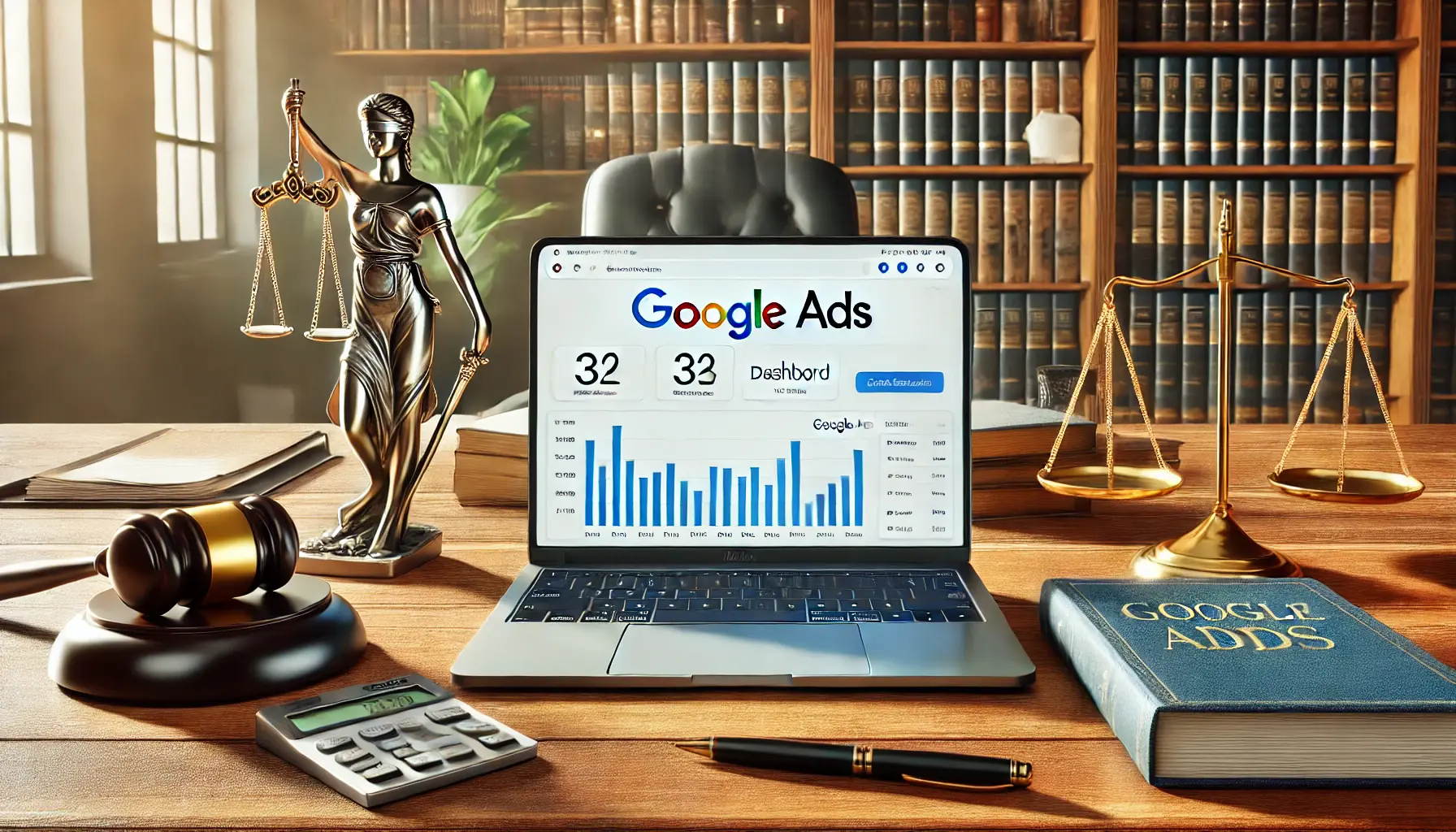The landscape of digital marketing for lawyers has undergone a significant transformation over the past decade.
As the digital world becomes increasingly integrated into our daily lives, law firms and legal professionals are recognizing the importance of adapting to these changes to stay competitive and relevant.
The evolution of digital marketing has opened new avenues for lawyers to connect with potential clients, build their brand, and establish themselves as thought leaders in their respective fields.
At the core of this evolution is the understanding that digital marketing is not just about having an online presence.
It’s about leveraging various digital channels effectively to reach and engage with your target audience.
For lawyers, this means utilizing a combination of SEO, content marketing, social media, and email marketing strategies to attract, engage, and convert potential clients.
The goal is to create a comprehensive digital marketing strategy that aligns with the firm’s objectives, enhances its visibility online, and drives meaningful results.
- The Importance of SEO in Legal Digital Marketing
- Effective Social Media Strategies for Lawyers
- Email Marketing: A Vital Tool for Client Engagement
- Maximizing Impact with Pay-Per-Click Advertising
- Building a Robust Online Reputation
- Analytics and Performance Tracking
- Integrating Digital Marketing Strategies
- Conclusion: Embracing the Digital Marketing Evolution for Lawyers
- Digital Marketing Evolution for Lawyers: FAQs
The Importance of SEO in Legal Digital Marketing
Optimizing for Search Engines
Search Engine Optimization (SEO) is the cornerstone of any successful digital marketing strategy for lawyers.
By optimizing their websites and content for search engines, law firms can improve their visibility in search engine results pages (SERPs), making it easier for potential clients to find them.
SEO involves a combination of on-page and off-page techniques, including keyword research, content optimization, link building, and technical SEO, to enhance a website’s ranking for relevant search queries.
For lawyers, focusing on local SEO is particularly important.
Many legal services are sought by clients within specific geographic locations.
By optimizing for local search queries and ensuring their Google My Business listings are accurate and comprehensive, law firms can increase their chances of appearing in local search results and Google Maps, making it easier for potential clients in their area to find and contact them.
Local SEO is crucial for lawyers to target potential clients in their vicinity.
Content Marketing for Legal Expertise
Content marketing is another critical component of digital marketing for lawyers.
By creating and distributing valuable, relevant, and consistent content, lawyers can attract and retain a clearly defined audience.
This not only helps in building trust and establishing the lawyer’s expertise in their field but also plays a significant role in improving SEO.
Search engines favor websites that publish high-quality, informative content regularly.
Lawyers can leverage various types of content, such as blog posts, articles, infographics, and videos, to address common legal questions, discuss recent changes in the law, or provide insights into complex legal issues.
This not only helps in attracting traffic to their website but also positions them as authoritative sources of legal information, encouraging potential clients to engage with their firm.
Effective Social Media Strategies for Lawyers
Social media has become an indispensable tool in the digital marketing arsenal for lawyers.
It offers a platform not only for promotion but also for engaging directly with potential clients and building a community around your practice.
The key to success on social media lies in understanding which platforms your target audience uses and how to effectively communicate your message.
For legal professionals, platforms like LinkedIn, Twitter, and Facebook are invaluable for establishing professional connections, sharing legal insights, and engaging with clients.
Each platform serves a different purpose and audience, necessitating a tailored approach to maximize its potential.
- LinkedIn: Ideal for building professional networks, sharing legal articles, and showcasing expertise to other professionals and potential clients.
- Twitter: Great for sharing quick legal updates, participating in relevant conversations, and engaging with a broader audience.
- Facebook: Useful for connecting with the community, sharing more detailed content like blog posts, and running targeted advertisements.
Creating Engaging Content
Content on social media should be engaging, informative, and tailored to the interests of your audience.
Lawyers can share a mix of content types, including:
- Legal tips and advice that address common client concerns.
- Updates on recent legal changes or landmark cases.
- Personal stories or case studies that highlight the lawyer’s success and approach to solving legal issues.
Engagement is crucial on social media.
Lawyers should actively respond to comments, participate in relevant discussions, and use hashtags to increase the visibility of their posts.
This not only helps in building a loyal following but also enhances the lawyer’s reputation as approachable and client-focused.
Incorporating a mix of professional insights, legal updates, and personal stories can make social media content more relatable and engaging for potential clients.
Measuring Social Media Success
Tracking the performance of social media activities is essential to understand what resonates with your audience and to refine your strategy over time.
Key metrics to monitor include:
- Engagement rates (likes, comments, shares).
- Followers growth over time.
- Traffic to your website originating from social media platforms.
- Lead generation and conversion rates from social media campaigns.
By analyzing these metrics, lawyers can gain insights into the effectiveness of their social media strategies and make informed decisions to optimize their online presence and engagement with potential clients.
Email Marketing: A Vital Tool for Client Engagement
Email marketing remains one of the most effective digital marketing strategies for lawyers, offering a direct line of communication with both potential and existing clients.
Its power lies in the ability to deliver personalized content that caters to the interests and needs of the recipient, thereby fostering stronger relationships and encouraging engagement with your law firm.
To leverage email marketing effectively, lawyers should focus on building a segmented email list that allows for targeted communication.
This segmentation can be based on various criteria, such as the recipient’s legal interests, previous interactions with your firm, or their stage in the client journey.
By tailoring your messages to fit the specific context of each segment, you can significantly increase the relevance and effectiveness of your communications.
Developing a Content Strategy for Email
Your email content strategy should aim to provide value to your recipients, positioning your firm as a helpful and knowledgeable resource.
Consider including:
- Legal updates and insights that keep your audience informed about relevant changes in the law.
- Practical tips and advice that address common legal issues faced by your target audience.
- Case studies and success stories that demonstrate your expertise and the tangible results you’ve achieved for clients.
It’s also important to maintain a consistent sending schedule and to ensure that your emails are mobile-friendly, as a significant portion of users now access their email through mobile devices.
Optimizing for Conversion
The ultimate goal of email marketing is to drive action, whether that’s contacting your firm for a consultation, downloading a resource, or attending an event.
To optimize your emails for conversion:
- Include clear and compelling calls to action (CTAs) that guide recipients towards the next step.
- Use engaging subject lines that capture attention and encourage recipients to open the email.
- Personalize your emails as much as possible to increase relevance and connection with the recipient.
By focusing on providing value and tailoring your messages to the needs of your audience, email marketing can become a powerful tool in your digital marketing strategy, helping to build relationships, establish trust, and ultimately drive more business to your law firm.
Regularly reviewing and analyzing the performance of your email campaigns is crucial for understanding what works and refining your strategy for even better results.
Maximizing Impact with Pay-Per-Click Advertising
Pay-Per-Click (PPC) advertising stands out as a pivotal component in the digital marketing strategy for lawyers, offering the ability to directly target potential clients who are actively searching for legal services.
PPC campaigns can be finely tuned to display ads to users based on specific search queries, geographic location, and even the time of day, ensuring that your law firm is visible to the right people at the right time.
For law firms, Google Ads is often the platform of choice due to its vast reach and the detailed targeting options it provides.
Crafting successful PPC campaigns, however, requires a deep understanding of your target audience and the legal services you wish to promote.
It involves selecting the right keywords, creating compelling ad copy, and designing landing pages that are optimized for conversion.
Keyword Selection and Bid Strategy
Choosing the right keywords is crucial for the success of any PPC campaign.
For lawyers, this means focusing on terms that potential clients are likely to use when seeking legal assistance.
Long-tail keywords, which are more specific and less competitive, can be particularly effective for targeting users with a clear intent to hire a lawyer.
Your bid strategy should aim to balance visibility with cost-effectiveness.
Automated bidding strategies, offered by platforms like Google Ads, can help by adjusting your bids in real-time to maximize the chances of your ads being shown to the right audience within your budget constraints.
Creating Effective Ad Copy and Landing Pages
The ad copy should be clear, concise, and compelling, with a strong call to action that encourages users to click through to your website.
Highlighting the unique selling points of your law firm, such as your expertise in a specific area of law or your track record of successful cases, can help differentiate your ads from those of competitors.
Landing pages play a critical role in converting visitors into leads.
Each landing page should be directly relevant to the ad that the user clicked on, providing detailed information about the service offered and including a clear, easy-to-find contact form or other conversion mechanism.
By carefully managing and optimizing your PPC campaigns, you can significantly increase the visibility of your law firm online, attract more qualified traffic to your website, and ultimately generate more leads and clients for your practice.
PPC advertising offers immediate visibility and targeted traffic, making it an essential strategy for law firms looking to attract new clients quickly.
Building a Robust Online Reputation
In the digital age, a law firm’s online reputation can be one of its most valuable assets.
Prospective clients often turn to the internet to research legal services, and what they find can significantly influence their decision to hire a particular lawyer or law firm.
Therefore, actively managing and enhancing your online reputation is crucial for attracting new clients and retaining existing ones.
There are several key strategies that lawyers can employ to build and maintain a strong online presence:
- Collecting Client Reviews: Encourage satisfied clients to leave positive reviews on platforms like Google, Yelp, and Avvo. Positive reviews not only enhance your firm’s credibility but also contribute to local SEO efforts.
- Managing Online Profiles: Ensure that your law firm’s profiles on legal directories and social media platforms are up-to-date, professional, and reflective of the quality of services you provide.
- Responding to Feedback: Actively respond to both positive and negative reviews in a professional manner. This shows that you value client feedback and are committed to improving your services.
Content Creation and Thought Leadership
Beyond managing reviews and profiles, producing high-quality, informative content is a powerful way to build your firm’s reputation online.
By sharing your expertise through blog posts, articles, and white papers, you can establish yourself as a thought leader in your area of law.
This not only attracts potential clients but also builds trust and credibility.
- Focus on topics that are relevant to your target audience and address their most pressing legal questions and concerns.
- Utilize various formats, such as video, infographics, and podcasts, to make your content more engaging and accessible.
Leveraging Social Proof
Social proof, such as client testimonials, case studies, and endorsements from industry peers, can significantly enhance your law firm’s online reputation.
These elements provide tangible evidence of your expertise and success in handling legal matters, which can be persuasive to prospective clients.
- Feature client testimonials prominently on your website and in your marketing materials.
- Share case studies that highlight specific challenges you’ve helped clients overcome and the results you’ve achieved.
- Seek endorsements and recommendations from peers and industry leaders to further validate your expertise and credibility.
By implementing these strategies, lawyers can effectively manage their online reputation, showcasing their expertise and success to attract and retain clients in a competitive digital landscape.
A strong online reputation is essential for law firms in the digital age, influencing both client acquisition and retention.
Analytics and Performance Tracking
Understanding the impact of your digital marketing efforts is crucial for continuous improvement and success.
Analytics and performance tracking allow lawyers and law firms to gauge the effectiveness of their strategies, identify areas for enhancement, and make data-driven decisions.
Utilizing tools like Google Analytics, social media insights, and email marketing software, legal professionals can monitor various metrics to assess the performance of their online activities.
Key areas to focus on include website traffic, user behavior, conversion rates, and the ROI of advertising campaigns.
By analyzing this data, lawyers can refine their digital marketing strategies to better meet the needs of their target audience and achieve their business objectives.
Website Traffic and User Engagement
- Monitor the volume of traffic to your website and identify the sources of this traffic, such as organic search, social media, or PPC campaigns.
- Analyze user behavior on your site, including page views, time spent on site, and bounce rates, to understand what content resonates with your audience.
Conversion Rate Optimization
- Track conversion rates to measure the effectiveness of your website and landing pages in turning visitors into leads or clients.
- Use A/B testing to experiment with different elements of your web pages, such as CTAs, headlines, and form designs, to improve conversion rates.
ROI of Digital Marketing Campaigns
- Calculate the ROI of your digital marketing campaigns by comparing the cost of these campaigns to the revenue generated from new clients acquired through these efforts.
- Adjust your marketing budget allocation based on the performance of different channels and campaigns to maximize ROI.
Regularly reviewing and analyzing performance data enables law firms to optimize their digital marketing strategies continuously.
This not only helps in achieving better results but also ensures that marketing resources are being used efficiently to generate the highest possible return on investment.
Effective use of analytics and performance tracking is essential for optimizing digital marketing strategies and maximizing ROI.
Integrating Digital Marketing Strategies
The digital marketing landscape for lawyers is multifaceted, encompassing a range of strategies from SEO and content marketing to social media, email marketing, and PPC advertising.
The key to maximizing the effectiveness of your digital marketing efforts lies in integrating these strategies into a cohesive plan.
By ensuring that each component of your digital marketing strategy works in harmony with the others, you can create a more powerful and unified online presence for your law firm.
Integration involves aligning your content marketing efforts with your SEO goals, leveraging your content across social media platforms, using email marketing to nurture leads generated through your website, and reinforcing your brand message consistently across all channels.
This holistic approach not only amplifies the impact of each individual strategy but also enhances the overall online experience for potential clients.
Creating a Unified Brand Message
- Ensure that your law firm’s brand message is clear, consistent, and communicated effectively across all digital marketing channels.
- Develop a content strategy that reflects your firm’s values, expertise, and the unique benefits you offer to clients, and make sure this message resonates through every piece of content you publish.
Leveraging Cross-Channel Synergies
- Use insights gained from one channel to inform strategies in another. For example, topics that perform well on social media can inspire blog posts or email newsletter content.
- Integrate your PPC advertising with your SEO efforts by targeting similar keywords and using ad copy that complements your organic search listings.
Measuring Success Across Channels
- Implement a comprehensive analytics strategy to track performance across all digital marketing channels, allowing you to see which strategies are driving the most value for your firm.
- Use data from analytics to refine and adjust your integrated marketing plan, focusing on strategies that offer the best return on investment.
By integrating your digital marketing strategies, you can create a seamless online presence that attracts, engages, and converts potential clients more effectively.
This integrated approach not only helps in building a stronger brand but also drives better results, making it a critical component of successful digital marketing for lawyers.
An integrated digital marketing strategy ensures that all components work together towards common goals, enhancing the effectiveness of each and improving overall results.
Conclusion: Embracing the Digital Marketing Evolution for Lawyers
The digital marketing landscape for lawyers has expanded significantly, offering numerous opportunities for legal professionals to enhance their online presence, connect with potential clients, and build a robust digital brand.
As we’ve explored, the integration of SEO, content marketing, social media, email marketing, and PPC advertising forms the backbone of a successful digital marketing strategy for lawyers.
Each element plays a crucial role in attracting, engaging, and converting potential clients, contributing to the overall growth and success of a law firm in the digital age.
Key Takeaways for Legal Professionals
- Digital marketing offers an unparalleled opportunity for lawyers to reach and engage with their target audience in a cost-effective and measurable way.
- SEO and local SEO are essential for improving online visibility and attracting potential clients actively seeking legal services.
- Content marketing allows lawyers to demonstrate their expertise and build trust with their audience by providing valuable and informative content.
- Social media platforms are powerful tools for enhancing brand awareness, engaging with clients, and sharing insights into the legal world.
- Email marketing remains a vital strategy for nurturing leads and maintaining relationships with existing clients through personalized communication.
- PPC advertising can quickly increase a law firm’s visibility and attract targeted traffic to their website, complementing long-term SEO efforts.
- Integrating these digital marketing strategies into a cohesive plan amplifies their effectiveness and ensures a consistent and compelling online presence.
In conclusion, the evolution of digital marketing for lawyers presents both challenges and opportunities.
By adopting a strategic and integrated approach to digital marketing, law firms can navigate the complexities of the digital landscape effectively.
This not only enhances their ability to attract and retain clients but also positions them as forward-thinking and client-centric in an increasingly competitive market.
As the digital world continues to evolve, staying informed and adaptable will be key to leveraging the full potential of digital marketing for legal professionals.
Want your website to top Google search rankings? Leave the SEO to our professional agency!
Digital Marketing Evolution for Lawyers: FAQs
Explore common inquiries about how digital marketing is reshaping the legal landscape, offering insights into strategies that enhance online visibility and client engagement for lawyers.
Legal Internet Marketing refers to online strategies lawyers use to promote their services, including SEO, content marketing, and social media engagement, aimed at enhancing online visibility.
SEO is crucial for lawyers to improve their online visibility, making it easier for potential clients to find them through search engines for relevant legal queries.
Lawyers can use content marketing by creating informative and engaging content that addresses the legal concerns of their target audience, establishing their authority in the field.
Social media allows lawyers to build brand awareness, engage with their audience, and share valuable legal insights, enhancing their digital presence and client relationships.
Email marketing benefits law firms by enabling personalized communication with potential and existing clients, nurturing leads, and keeping the firm top-of-mind for legal services.
PPC advertising offers lawyers a direct way to target potential clients searching for legal services online, providing immediate visibility and attracting qualified leads.
Lawyers measure digital marketing success by tracking metrics such as website traffic, conversion rates, client acquisition costs, and overall ROI of their marketing campaigns.
Integrating various digital marketing strategies ensures a cohesive online presence, amplifies the impact of each tactic, and drives more effective client engagement and acquisition.










